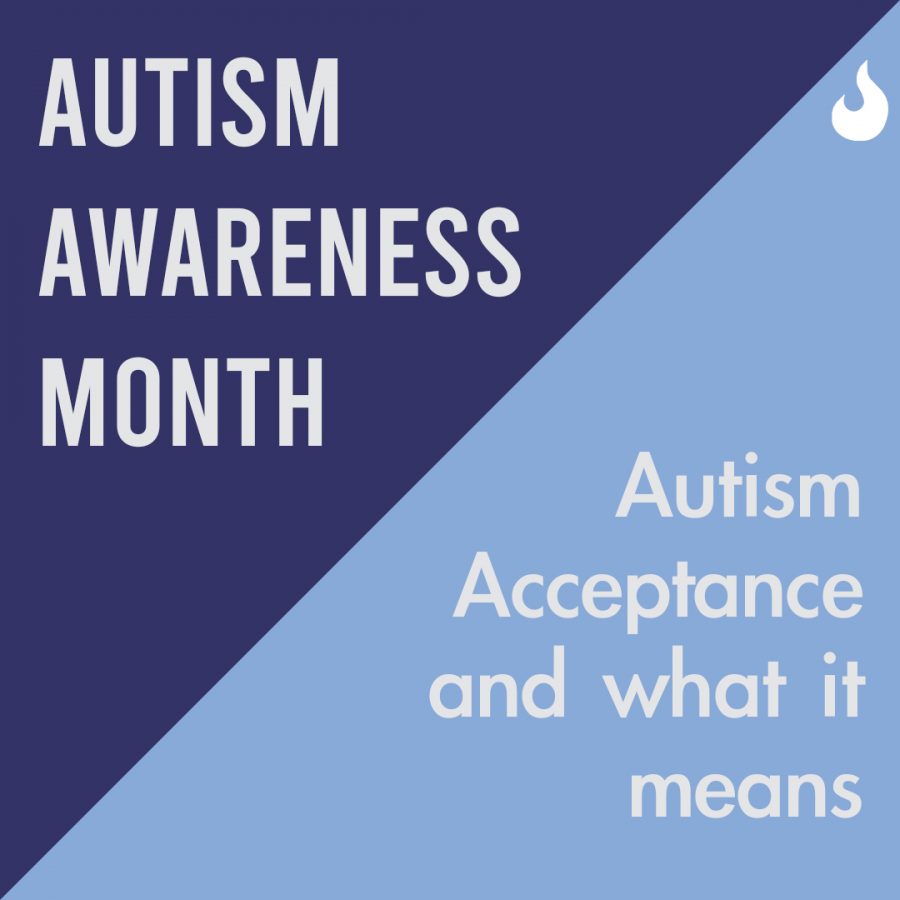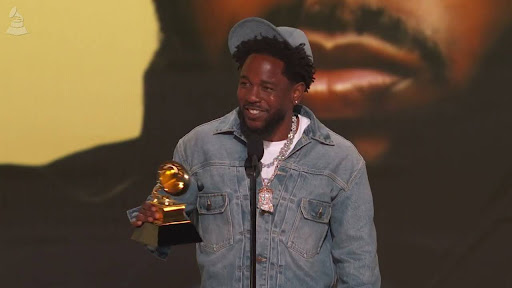As an 18-year-old woman recently diagnosed with autism spectrum disorder, you can imagine how important Autism Acceptance Month is to me. Though the term “Autism Awareness Month” has been popularized for the month of April, some autistics, myself included, are trying to deviate away from the term “awareness” due to its connection to Autism Speaks.
Autism Speaks, an organization that claims to support people on the spectrum has monopolized and spewed harmful rhetoric toward the autistic community for years. Alongside this, many autistics have decided to start using the term “Autism Acceptance” to combat the years of discrimination we have all faced. By saying “Autism Acceptance Month,” it assists the normalization and understanding of autism.
Autism Speaks has generally always been accepted from a mainstream eye. They were founded upon the idea that autism is something to be cured. It wasn’t until 2016 when they “updated its mission statement for the first time since its founding in 2005. It was then that they dropped the word “cure” . Their support for a cure was never covert, Autism Speaks even merged with organizations such as Cure Autism Now. However, it isn’t until now that people are finally listening to Autistics, most of which have never wanted a cure. The outrage from both allies and autistic people may have acted as a catalyst to an end for the search of a cure, but the wounds have hardly healed.
The Torch reached out to Autism Speaks via email for comment on their practices and mission.
“Autism Speaks supports everyone on the autism spectrum and recognizes the diverse viewpoints within our community,” the spokesperson stated in the email. “By fostering acceptance and understanding, our goal is for all people on spectrum, no matter how they self-identify, to be appreciated for who they are and the contributions they make to society.”
Aside from the fact that they devoted countless years to the eradication of autism, it is almost impossible to forgive their promotion of the Judge Rotenberg Center, infamously known for electrically shocking students with disabilities. In fact, Autism Speaks still supports and funds practices that harm the autistic community.
In response to my claims, Autism Speaks said “many aspects of autism can be significantly debilitating, and that is why efforts to deliver scientific breakthroughs are so important, with the goal of enabling those on the autism spectrum to be the best they can be.”
Applied Behavioral Analysis (ABA) is a major treatment that many autistics find oppressive. Autism Speaks defines one of the pillars of ABA as, “a behavior [that] is followed by something that is valued (a reward), a person is more likely to repeat that behavior. Over time, this encourages positive behavior change.” Similarly, another popular practice under Autism Speaks is Pivotal Response Treatment (PRT). One of the main goals of PRT is “relief from disruptive self-stimulatory behaviors.”
In the email, Autism Speaks responded to concerns about ABA therapy by stating, “ABA should reward positive behavior and only help decrease behaviors that are harmful. It should never be applied simply to “train out” individual differences or personality traits.” However, many people on the spectrum are still skeptical. This is why we (autistics) now wish to highlight the necessity of “acceptance” concerning the autistic community.
Autistic people engage in self-stimulatory behavior to cope and soothe themselves in an environment that isn’t built for them. These habits should be normalized in our society and accepted by peers, parents, teachers and anyone else who knows someone who experiences this. Acceptance is accessibility; we should accommodate, not eliminate these behaviors.
This applies to the way that we embrace these autistic traits in our peers. Whether someone you know is diagnosed or not, ridiculing these traits is harmful not just to the community but to those around you.
Our society commonly alienates and mocks people who do not adhere to certain standards, with one prevalent example in our generation being “horse girls.” While I am not saying anyone who is deemed a “horse girl” is on the spectrum, most of the time the behaviors that people find humorous are actually autistic traits. People on the spectrum have “special interests” which usually make up a large part of their personalities. When people show these signs of an intense interest, they are labeled “obsessed,” “crazy” or “weird” for something they cannot control, similar to “horse girls.” People who follow unconventional speech patterns are also commonly subjected to mockery. Typically things that sound disingenuous or taken directly from the media are key victims. Ridiculing people for anything is never okay, but the harm that is attached to making fun of people for something they can’t control due to a developmental disorder is a form of ableism that is generally accepted. We have to stop laughing at people who may talk differently, repeat phrases, have intense interests and generally hold a certain individuality.
During Autism Acceptance Month, I believe we should all assess how we view each other. Nobody is perfect and most people have engaged in these harmful acts, but with this knowledge we should try to be sympathetic, accepting and understanding of people who may not fit the common mold. I hope we can all celebrate our differences during this month. I wish all autistics a happy Autism Acceptance Month and I’m proud to be part of this community as I hope others in the community are as well.









Morgan Wood • May 3, 2021 at 9:51 am
Have you all heard anything about one herbalist called Dr Oselumen Ose on youtube? This man is great and can get rid of seizures/epilepsy
Ihatemedia • Apr 30, 2021 at 7:13 pm
“During Autism Acceptance Month, I believe we should all assess how we view each other.” Autism Speaks never researched for a cure. They only line their pockets as a money laundering scheme. This comment is coming out of an autistic who hates Autism Speaks, but I can’t give the Neurodiversity movement a free pass when they force their agenda down my throat.